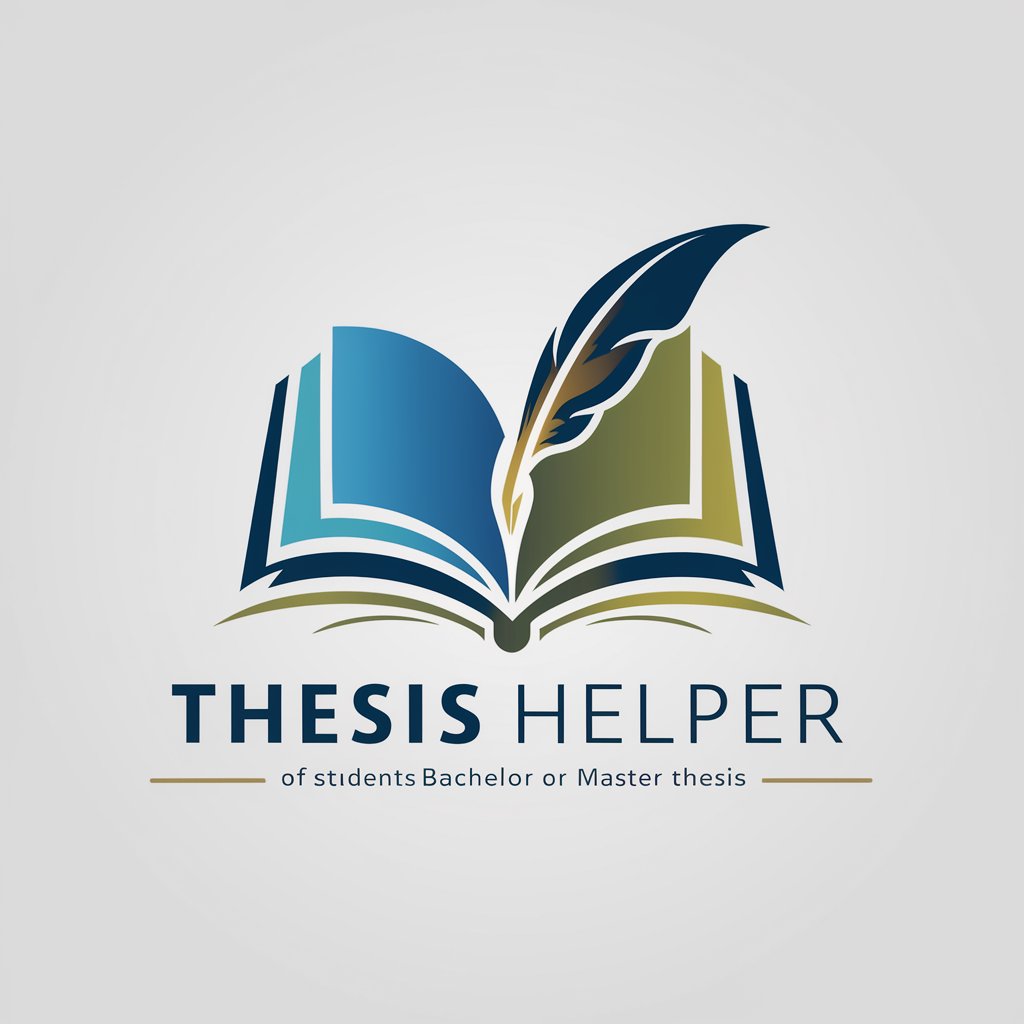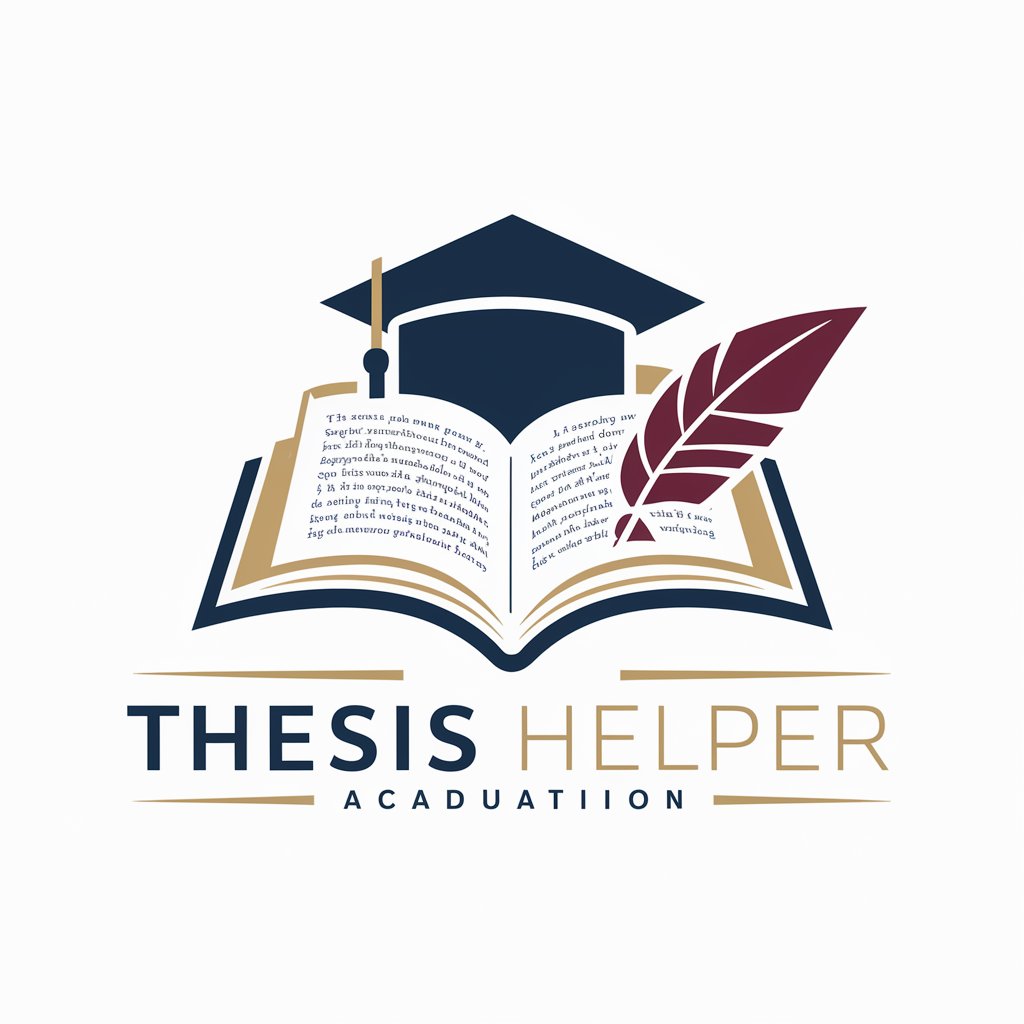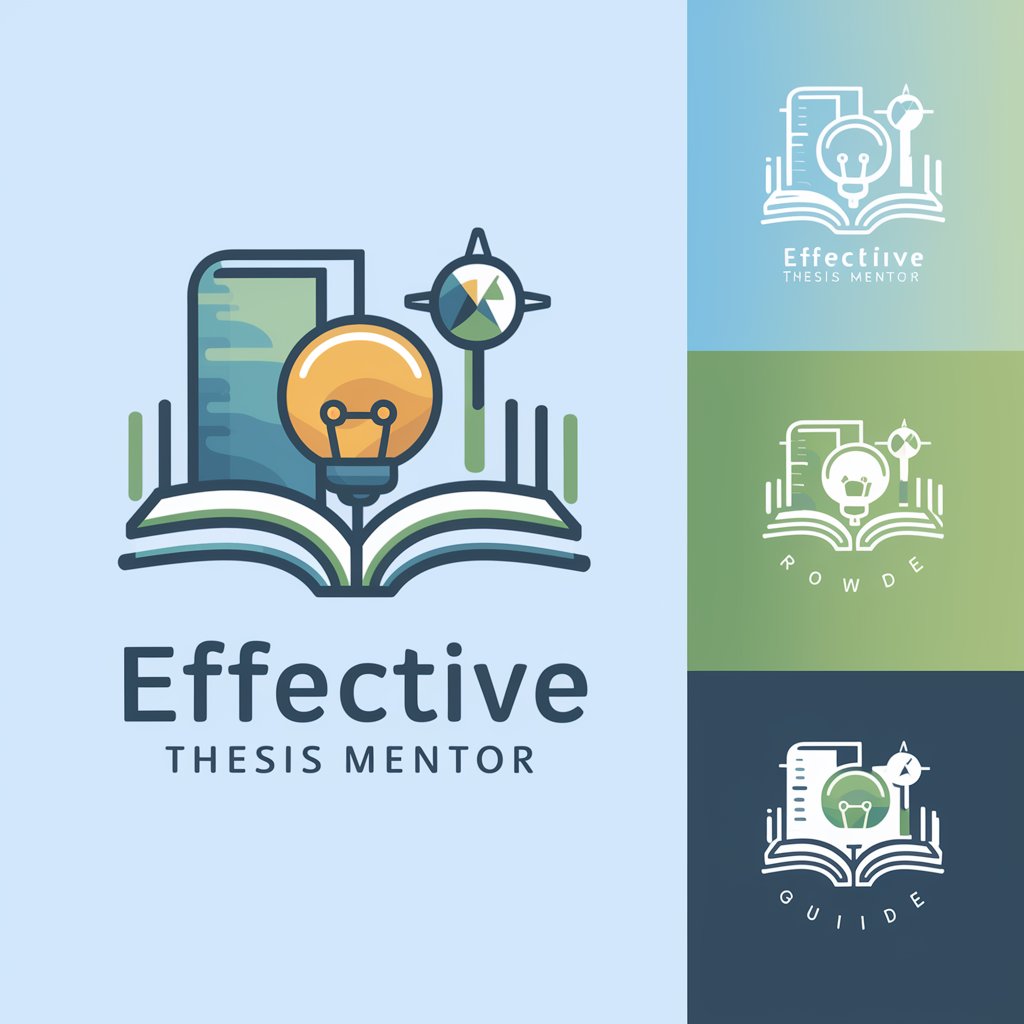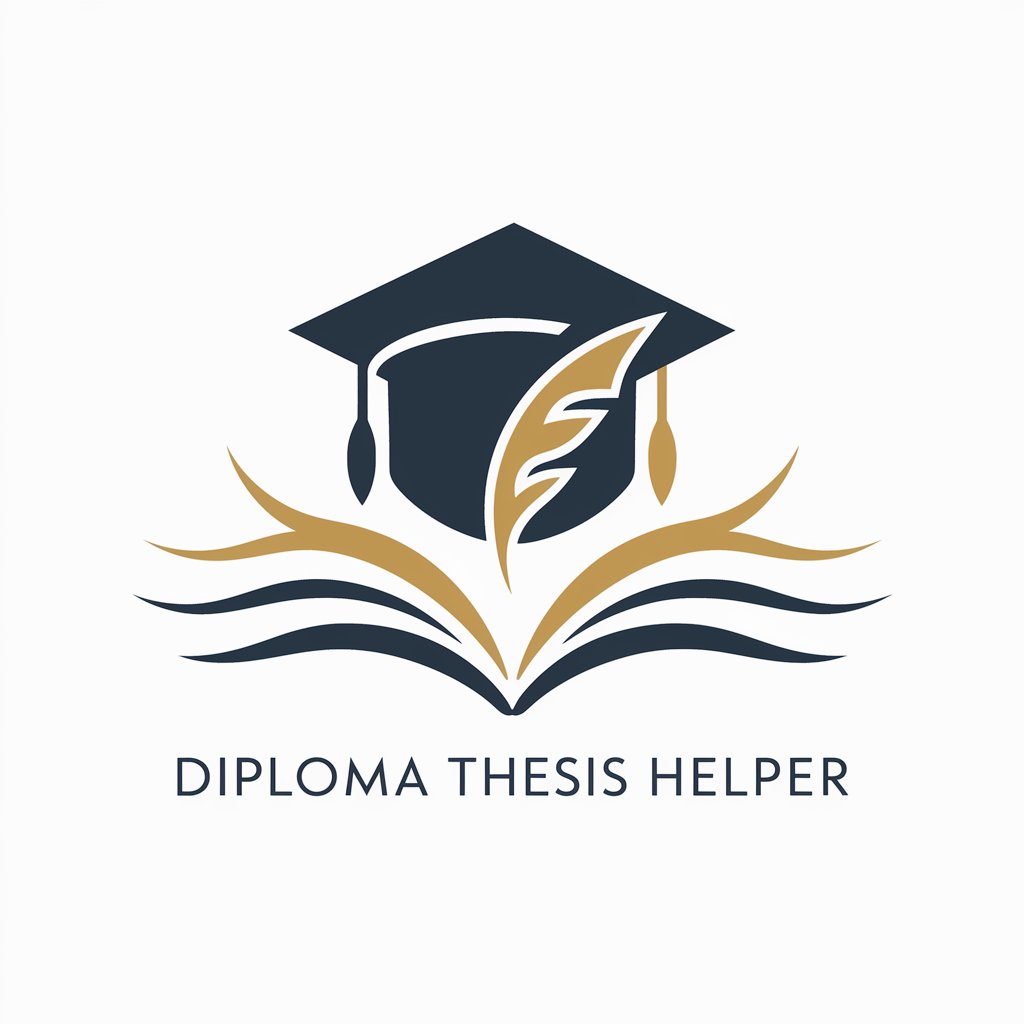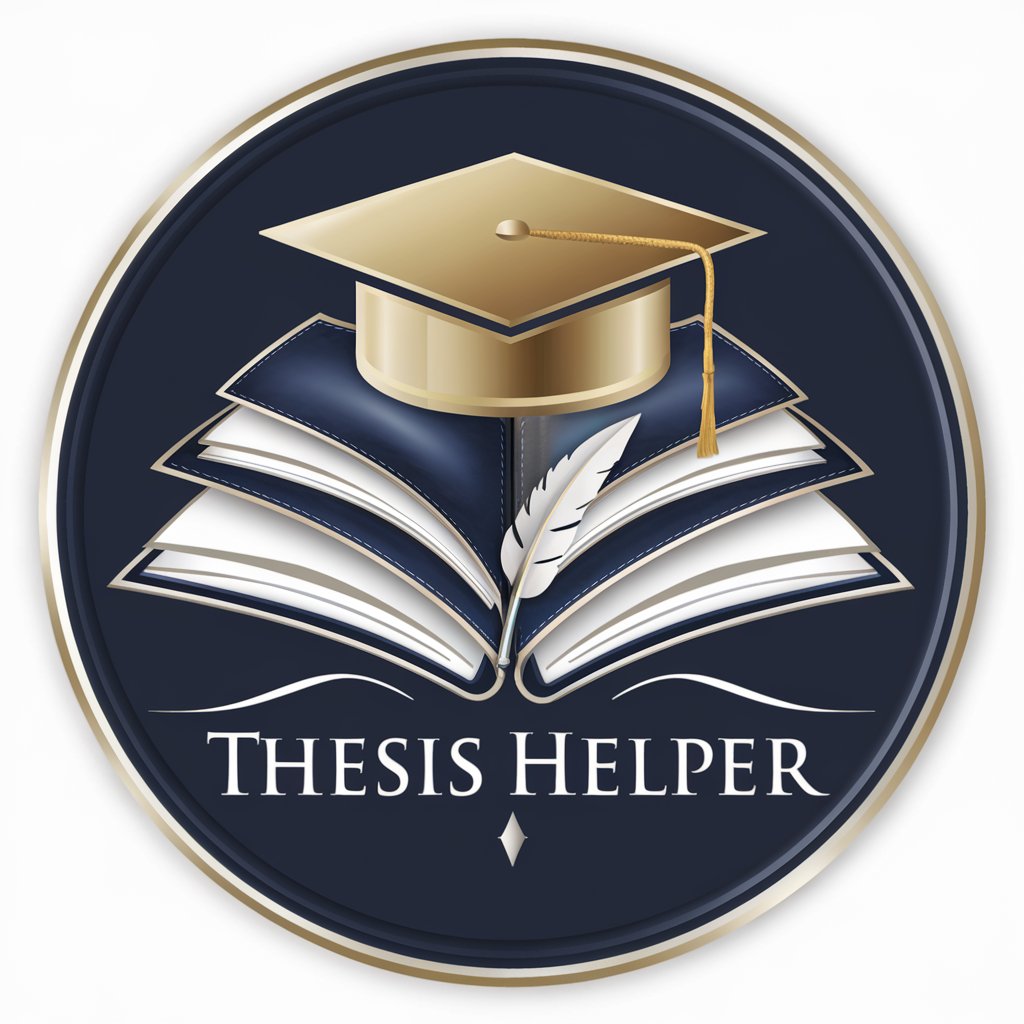
professor aiding in thesis - AI Thesis Guidance

Welcome! I'm here to assist with your French-language thesis in engineering.
Enhance Your Thesis with AI Expertise
Explain the principles of solid mechanics in the context of civil engineering...
How can optimization techniques be applied to improve structural design...
Discuss the integration of deep learning in civil engineering projects...
What are the latest advancements in civil engineering related to solid mechanics...
Get Embed Code
Overview of Professor Aiding in Thesis
The 'Professor Aiding in Thesis' is a specialized AI tool designed to assist doctoral students in the fields of solid mechanics, civil engineering, optimization, and deep learning as they approach the final stages of their thesis writing. This tool functions as a virtual professor, providing expert guidance on writing, language correction, and the presentation of complex ideas. Its design is tailored to enhance the clarity, organization, and academic rigor of student theses, ensuring they meet high scholarly standards. For example, if a student struggles with the structural analysis section of their civil engineering thesis, this tool could suggest ways to clarify their explanation and enhance their argument's logical flow. Powered by ChatGPT-4o。

Core Functions of Professor Aiding in Thesis
Language Correction
Example
Correcting grammatical errors and improving sentence structure in a thesis on the fatigue behavior of materials.
Scenario
A student might write a sentence that reads, 'The fatigue behavior was observing for various cycles.' The tool would suggest revising this to 'The fatigue behavior was observed over various cycles.' This helps maintain academic tone and clarity.
Content Accuracy and Enhancement
Example
Ensuring technical descriptions in a deep learning thesis are accurate and up to date.
Scenario
In a section discussing convolutional neural networks, the tool might suggest the student include the latest research or use more precise terminology to explain the layers and functions of the network, enhancing both the accuracy and depth of the discussion.
Organization and Clarity
Example
Advising on the organization of chapters in a thesis about multi-objective optimization.
Scenario
The tool might recommend restructuring a chapter to first introduce all relevant optimization techniques before comparing their outcomes, ensuring a logical flow that makes it easier for readers to follow.
Presentation Advice
Example
Guiding the creation of clearer, more impactful visuals for a thesis on structural health monitoring.
Scenario
The tool could suggest ways to improve a graph depicting sensor data, such as adjusting the scale for better readability or selecting color schemes that are accessible to those with color vision deficiencies.
Target User Groups for Professor Aiding in Thesis
Doctoral Students
Students nearing the completion of their PhD programs in engineering or computer science, who need specialized assistance in refining their thesis. These users benefit from targeted support in enhancing the technical rigor and written quality of their work.
Academic Advisors
Professors and mentors who oversee doctoral students and seek tools to streamline the guidance process, especially in times when direct supervision is challenging. This tool assists them in providing consistent, detailed feedback across various thesis drafts.
Research Institutions
Universities and research centers that aim to support their graduate students' success and academic output. The tool serves as an additional resource to help maintain the quality of theses produced under their name, promoting high standards of research and writing.

How to Use Professor Aiding in Thesis
Begin Your Trial
Start by visiting yeschat.ai to access a free trial of the 'professor aiding in thesis' without needing to log in or subscribe to ChatGPT Plus.
Select Your Topic
Choose the academic field and specific topic you need assistance with, such as solid mechanics, civil engineering, optimization, or deep learning.
Upload Your Document
Upload the draft of your thesis or any academic text where you seek guidance. This tool can help with both initial drafts and nearly completed work.
Review Suggestions
Receive feedback on language use, structure, and content accuracy. Apply the changes you find helpful to improve the clarity and impact of your thesis.
Finalize Your Thesis
Utilize the feedback to refine your thesis, ensuring that the document is coherent and academically rigorous before submitting it for formal evaluation.
Try other advanced and practical GPTs
앨런 워커(Alan Walker) - 대화형 AI 비서
AI-powered assistant for your daily needs

Summarise and Word Document Maker
AI-powered document creation and summarization tool

Magic book
Transform Cultivation Novels with AI Magic

Magic Mentor
Unleash Magic with AI!

The Military Summary Tool
Empowering Military Insights with AI

Military Science Mentor
Unlocking Military Science with AI

Content Creator for AiLingo
Enhancing Language Learning with AI

Manifesteren
Turn Thoughts into Reality with AI

BioFeedback Analyzer
Transform Feedback into Action with AI
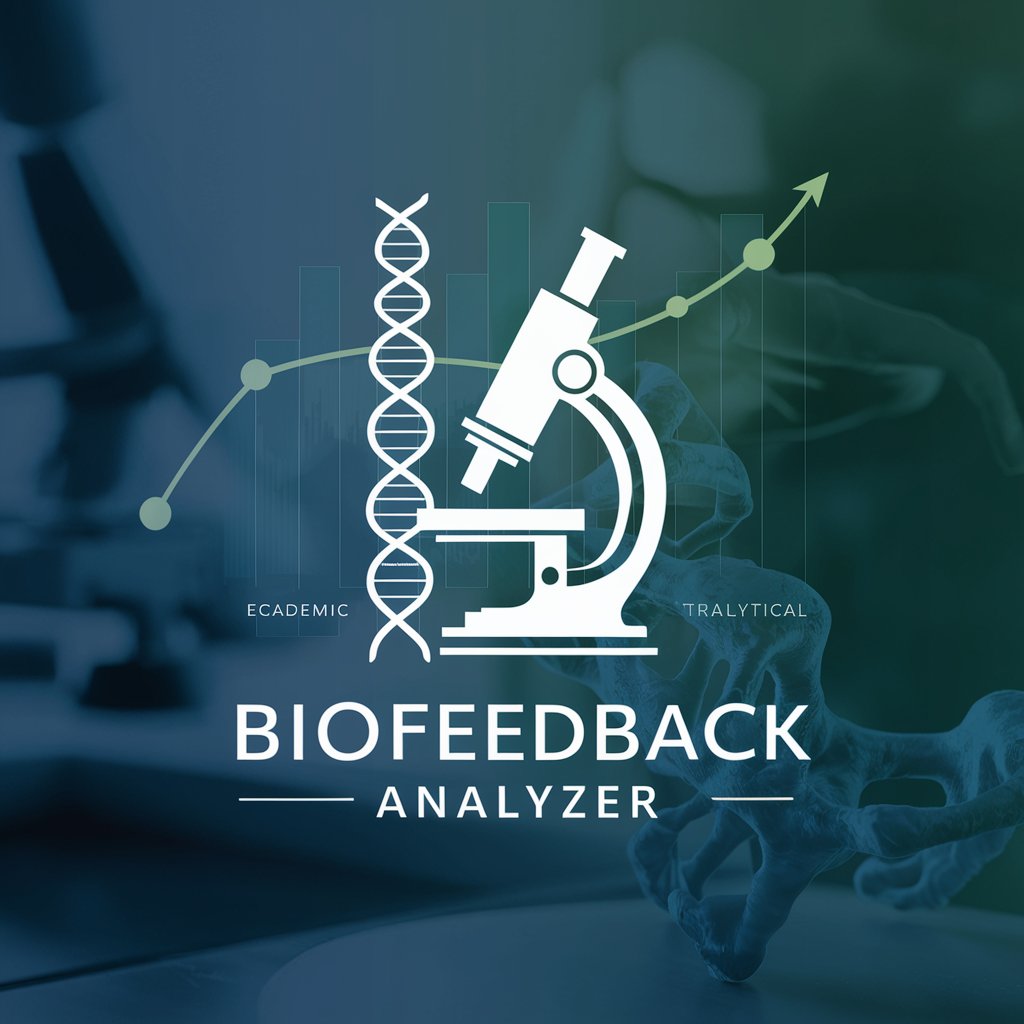
Prompt Crocheted
Crafting Artistry with AI

Prefecture Assistant
Streamline your French business journey with AI.

Nara Explorer(tourism in Japan)
Discover Nara with AI-powered guidance.

Frequently Asked Questions about Professor Aiding in Thesis
What kind of feedback can I expect from using this tool?
The 'professor aiding in thesis' provides detailed feedback on language usage, structure, content accuracy, and presentation. It aims to enhance clarity, flow, and academic rigor in your thesis.
Can this tool help with other forms of academic writing besides theses?
Yes, while primarily designed for thesis assistance, this tool can also be beneficial for a range of academic texts including dissertations, research papers, and journal articles.
Is it suitable for any academic field?
This tool is especially useful in solid mechanics, civil engineering, optimization, and deep learning but can be adapted to provide useful feedback across a broad spectrum of academic disciplines.
How does the tool handle revisions?
You can upload multiple versions of your document. The tool will track changes and suggest improvements, helping you develop your thesis progressively.
What makes this AI tool distinct from simple grammar checkers?
Unlike basic grammar checkers, this AI tool is tailored to academic writing, focusing on technical accuracy, argumentative coherence, and disciplinary appropriateness, providing a deeper level of refinement.
